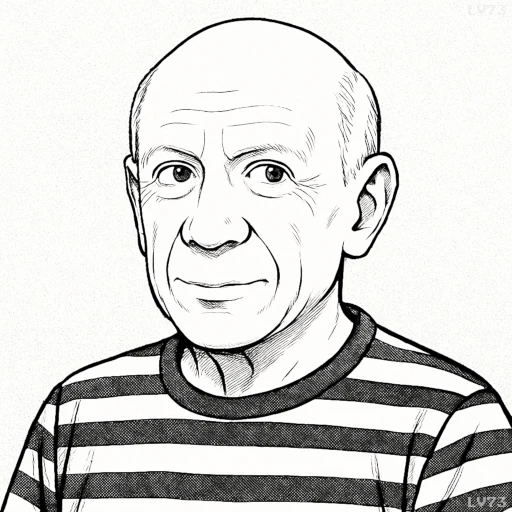“The world today doesn’t make sense, so why should I paint pictures that do?”

- October 25, 1881 – April 8, 1973
- Born in Spain
- Painter, sculptor, printmaker
table of contents
Quote
“The world today doesn’t make sense, so why should I paint pictures that do?”
Explanation
This provocative quote by Pablo Picasso speaks to his revolutionary approach to both art and life. Picasso, who lived through both World Wars, the Spanish Civil War, and a period of tremendous social and political upheaval, was no stranger to the absurdity and chaos of the world. His art evolved as a reflection of these times, moving from classical realism to Cubism, and later, to even more abstract and surreal forms. In saying this, Picasso suggests that, given the world’s inherent lack of logic and coherence, art—especially in times of crisis—should not feel bound by traditional rules or expectations. Art, in his view, is not about representing the world as it should be, but rather as it is, in all its chaos and irrationality.
The modern world continues to be filled with contradictions, social tensions, and a relentless pace of change. Picasso’s statement resonates even today, particularly in a time when art can challenge norms and express dissonance rather than harmony. In the digital age, where information is often contradictory and overwhelming, this idea reflects how artists, musicians, and writers sometimes feel the need to reject conventional forms of representation. The avant-garde movements of the 20th century, which Picasso helped shape, still influence contemporary artists who seek to reflect the world’s complexity and irrationality.
An example of this approach is seen in modern art movements such as abstract expressionism or surrealism, where artists like Jackson Pollock or Salvador Dalí embraced the nonsensical, allowing their works to challenge viewers’ expectations. Even today, in the realm of digital art, creators often subvert logic or narrative to create pieces that mirror the unpredictable and fractured nature of modern life. Picasso’s message suggests that art should not feel obligated to offer clarity or answers; instead, it should mirror the world’s confusion, allowing viewers to grapple with their own interpretations of it.
Would you like to share your impressions or related stories about this quote in the comments section?
